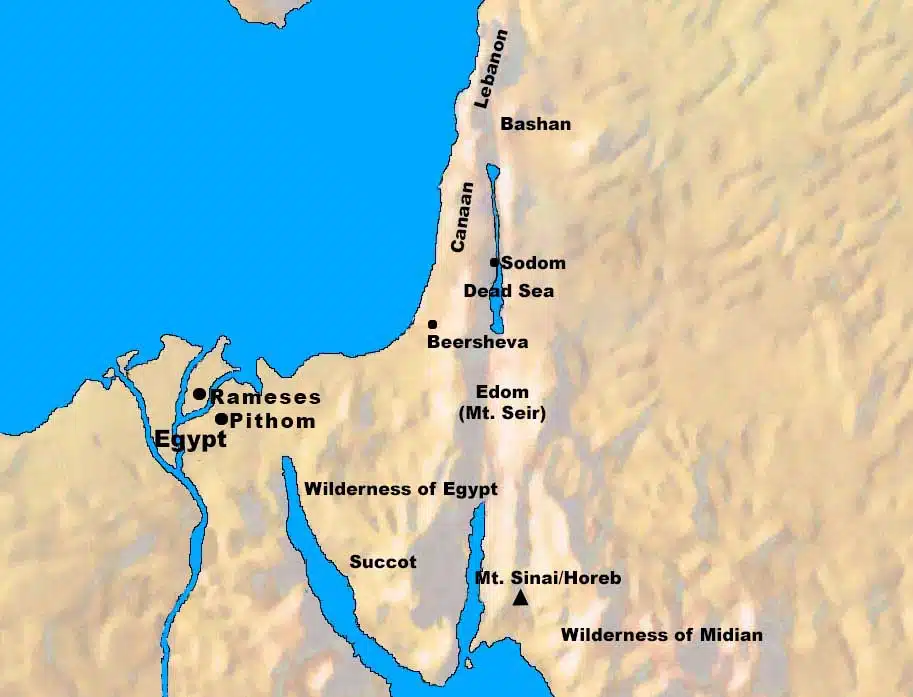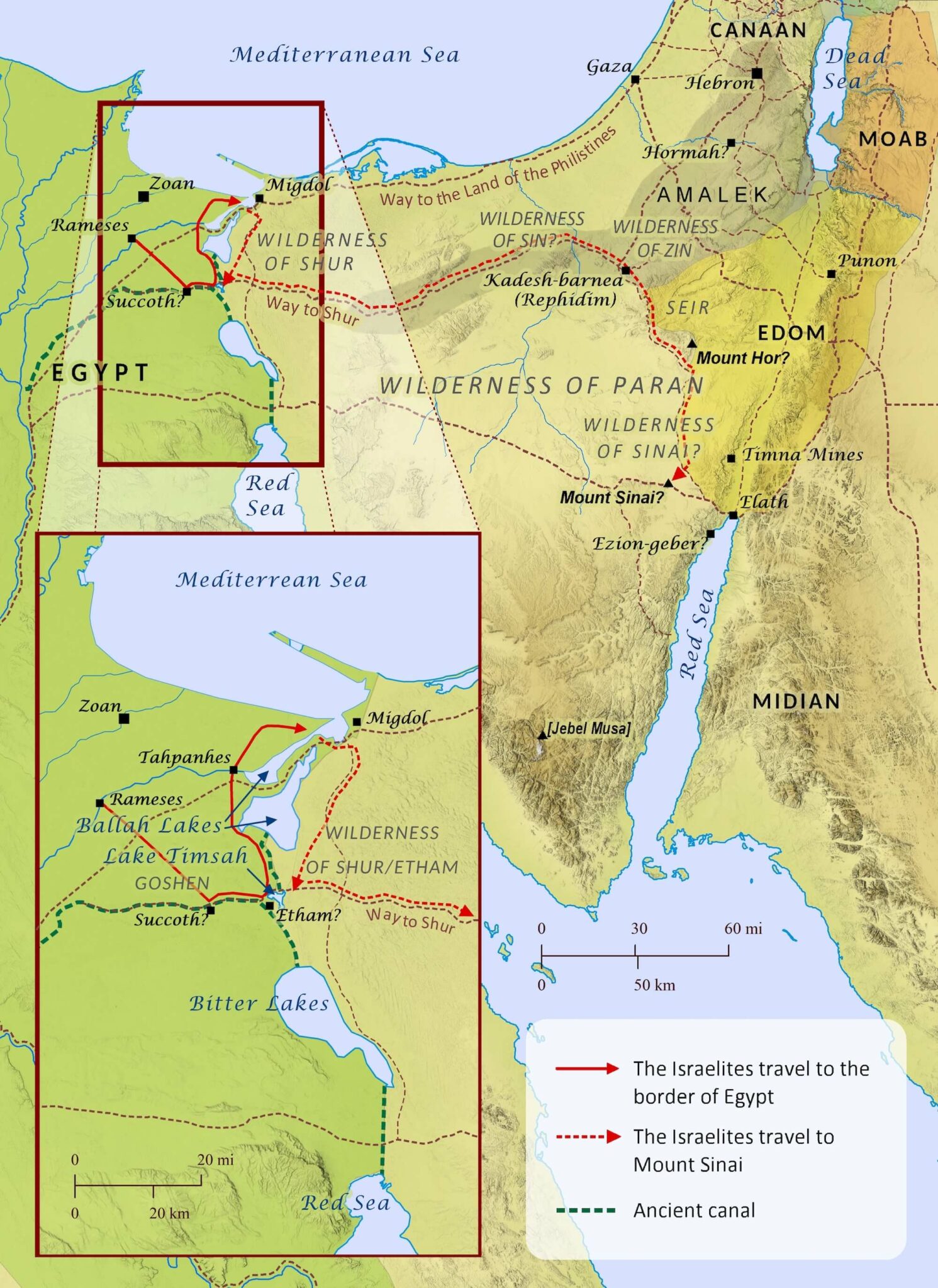The second section of chapter 16 (vv. 22 – 30) is the provision of rest based upon the observance of the Sabbath. Though the law concerning the Sabbath was not given until chapter 19, some sense of it has existed since the creation. Here, the LORD prepared the people for the importance of the Sabbath rest by providing a double portion (i.e. two omers) of manna on the sixth day.
Verse 22 continues the narrative of vv. 1 – 21 concerning manna. In this section, however, the LORD gave instructions about manna with respect to the keeping of the Sabbath. The people obeyed the instruction that on the sixth day they gathered twice as much bread, two omers for each one. At this time, they seem to have been unclear as to why this was necessary, so when all the leaders of the congregation came and told Moses, he was able to tell them why. Moses said to them, “This is what the Lord meant: Tomorrow is a sabbath observance, a holy sabbath to the Lord. Bake what you will bake and boil what you will boil, and all that is left over put aside to be kept until morning.”
Verse 23 is the first time in Scripture where the seventh day is called a “sabbath.” It was to be a “holy sabbath,” meaning that it was designed to be a day of rest and to cease from doing work. In Egypt, the Israelites probably worked seven days a week, so having a day off from working was another act of grace from the LORD. It was so important that it would become a significant part of the Law given at Sinai as one of the Ten Commandments (Exodus 20).
The people were instructed to prepare enough meals for two days, the day before the Sabbath (Friday) and the Sabbath itself, in order to prevent any work being done on the Sabbath, including food preparation. The LORD would sovereignly ensure that none of the food would go bad as had happened on other days.
There is a question about the reference to the Sabbath before it was included in the Mosaic Law on Mount Sinai in chapter 20. The Sabbath is associated with the “seventh day” (v. 26) on which the LORD “rested” after the six days of creation (Genesis 2:2). So, this had been a pattern since the creation. Now the LORD wanted His people to adopt the same pattern of working six days and resting on the seventh as He had done. To command them to begin observing the Sabbath rest here probably was meant to prepare them for it being codified in the Ten Commandments (Exodus 20) and in Leviticus 23:3.
In verse 24, the people obeyed the LORD and put it aside until morning, as Moses had ordered, and it did not become foul nor was there any worm in it. The people obeyed, and the LORD preserved the manna preparation for the Sabbath.
Verses 25 – 26 apparently refer to the next day (i.e. the Sabbath), because Moses said, “Eat it today, for today is a sabbath to the Lord; today you will not find it in the field. Moses then repeated the rules for the Sabbath in verse 26 – Six days you shall gather it, but on the seventh day, the sabbath, there will be none. The LORD was to provide manna six days a week but not on the seventh/Sabbath day.
But in spite of what was said in the previous verses making it clear there would be no manna on the seventh day, It came about on the seventh day that some of the people went out to gather, but they found none. Reacting to this lack of belief and obedience, the Lord said to Moses, “How long do you refuse to keep My commandments and My instructions? Although God patiently instructs and leads the people, He does not enable. Here God makes it clear that disobedience needs to cease.
The instructions about gathering a double portion on the sixth day and not going out to gather on the seventh day were simple and easy to understand. Yet, “some of the people went out to gather” anyway. In other words, they did not “rest” like they were instructed to do. So, to emphasize the importance of the commandment, the LORD said See, the Lord has given you the sabbath; therefore He gives you bread for two days on the sixth day. The word “see” was designed to be an attention-getting device to alert them to the importance of what was being said. They were to remain every man in his place; let no man go out of his place on the seventh day. Finally in verse 30, in obedience the people rested on the seventh day. It took the LORD’s anger to get them to obey.
Biblical Text:
22 Now on the sixth day they gathered twice as much bread, two omers for each one. When all the leaders of the congregation came and told Moses, 23 then he said to them, “This is what the Lord meant: Tomorrow is a sabbath observance, a holy sabbath to the Lord. Bake what you will bake and boil what you will boil, and all that is left over put aside to be kept until morning.” 24 So they put it aside until morning, as Moses had ordered, and it did not become foul nor was there any worm in it. 25 Moses said, “Eat it today, for today is a sabbath to the Lord; today you will not find it in the field. 26 Six days you shall gather it, but on the seventh day, the sabbath, there will be none.”
27 It came about on the seventh day that some of the people went out to gather, but they found none. 28 Then the Lord said to Moses, “How long do you refuse to keep My commandments and My instructions? 29 See, the Lord has given you the sabbath; therefore He gives you bread for two days on the sixth day. Remain every man in his place; let no man go out of his place on the seventh day.” 30 So the people rested on the seventh day.
Check out our other commentaries:
-
Numbers 8:20-22 meaning
Verses 20 – 22 record the completion of the ceremony by the Israelites. It involved the purification of the Levites and their presentation to the...... -
Acts 11:19-26 meaning
At the murder of Stephen years prior, a persecution against the church began. Due to the persecution, believing Jews spread out to regions like Phoenicia,...... -
Deuteronomy 24:16 meaning
Moses forbade the Israelites from punishing one family member for the actions of another member of the family. Each person had agency to choose, and...... -
Daniel 3:8-12 meaning
Political rivals of Shadrach, Meshach, and Abed-nego inform the king that the three Jewish subjects have not worshipped the golden statue. Nor have these three...... -
Exodus 31:1-11 meaning
The LORD specifies which Israelites were to construct the Tabernacle and its furnishings.......




